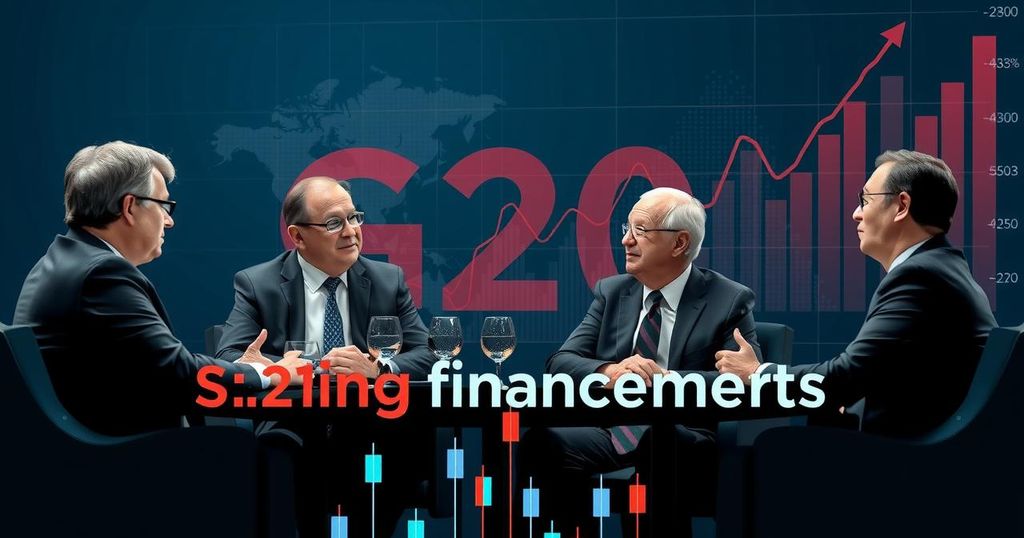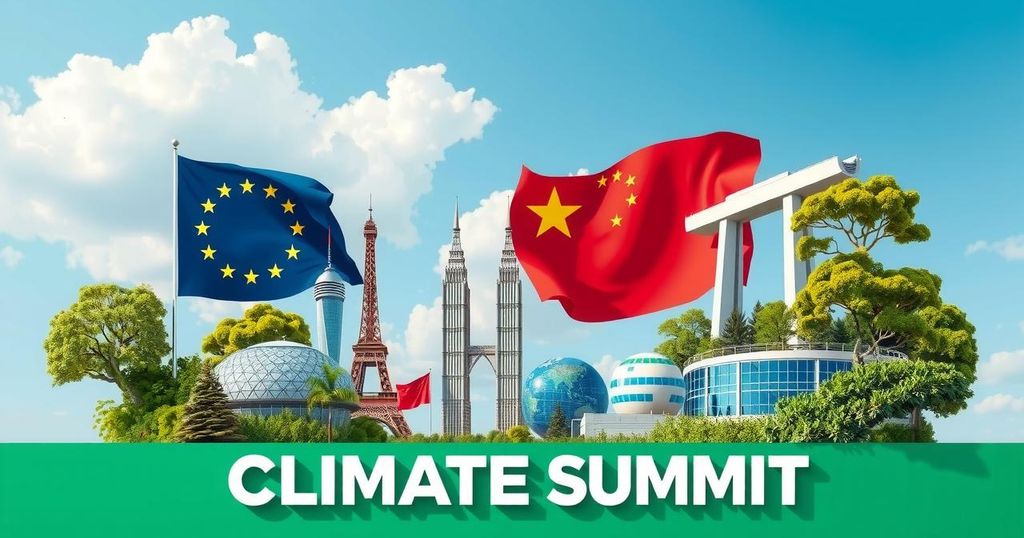UN Urges G20 Leaders to Prioritize Climate Finance or Face Economic Consequences
The UN has warned that G20 leaders must agree on climate finance for poorer nations during their meeting in Rio de Janeiro to avoid significant economic consequences. Rich nations are yet to fulfill their financial obligations, exacerbating the climate crisis faced by developing countries. As negotiations continue, the need for enhanced international cooperation and immediate climate action is highlighted.
The UN has issued an urgent warning to G20 leaders convening in Rio de Janeiro, emphasizing the necessity of climate finance to assist impoverished nations in combating the climate crisis, or else face dire economic consequences. As discussions unfold for two days, key ministers are currently engaged in stalled negotiations at the Cop29 climate summit in Azerbaijan. The UN has reiterated that rich nations have yet to fulfill commitments amounting to hundreds of billions of dollars required to enable poorer countries to manage greenhouse gas emissions and adapt to severe weather events. Simon Stiell, the UN’s climate chief, urged G20 leaders to prioritize the climate crisis, asserting that, “The G20 was created to tackle problems that no one country or group of countries can tackle alone. On that basis, the global climate crisis should be order of business number one, in Rio.” Stiell stressed that the impacts of climate change are causing widespread disruption across G20 economies, leading to supply chain issues, soaring food prices, and exacerbating inflation, which could spiral into economic calamity without urgent emissions reductions. Debt relief for poorer nations will also be a topic of discussion, as many are hindered by high debt servicing costs that impede their ability to invest in climate resilience. Stiell asserted that leaders must demonstrate a commitment to international cooperation, stating, “In turbulent times and a fracturing world, G20 leaders must signal loud and clear that international cooperation is still the best and only chance humanity has to survive global heating. There is no other way.” Expectations from Cop29 include a comprehensive financial package aimed at reaching $1 trillion in annual support for developing nations by 2030. According to researchers, approximately $2.4 trillion annually is necessary for these countries to meet the Paris Agreement objectives, with external financing encompassing private investments and contributions from multilateral development banks. Critics of the Cop process have raised concerns about its hosting in oil-rich nations, underscoring a potential conflict of interest. Significant fossil fuel lobbying has reportedly outnumbered delegates from the world’s vulnerable nations. Next year’s COP will occur in Brazil, where President Lula da Silva is anticipated to advocate for increased climate finance and stronger emissions targets from G20 leaders. The UK has set forth an ambitious target of reducing carbon emissions by 81% by 2035, which received commendation during Cop29. As negotiations continue, there is an urgent call for enhanced pacing and commitment from all parties involved in the endeavor to address the mounting climate crisis.
The convergence of G20 leaders in Rio de Janeiro highlights the pressing need for comprehensive action regarding climate finance for poorer nations facing the brunt of climate change. The ongoing discussions come at a crucial juncture as negotiations at the Cop29 climate summit in Azerbaijan have stagnated, underlining the urgency for financial commitments from wealthier nations. Globally recognized figures, including Simon Stiell, have stressed that climate change is not just an environmental issue, but a fundamental economic threat that could lead to significant repercussions for all nations involved if left unaddressed. The upcoming dialogue is also expected to involve considerations regarding debt relief, which has significant implications for the capacity of poorer nations to respond effectively to climate challenges.
In summary, the UN has underscored the critical responsibility of G20 leaders to secure financial support for poorer countries grappling with the consequences of climate change. The gathering in Rio is an opportunity to reaffirm commitments to international cooperation for climate action, which is deemed essential for sustainable economic futures. As significant discussions on debt relief and financial mechanisms unfold, the urgency for ambitious climate finance initiatives has never been more pronounced. The collective response to these challenges will shape the trajectory of global economic stability and climate resilience in the coming years.
Original Source: www.theguardian.com




Post Comment